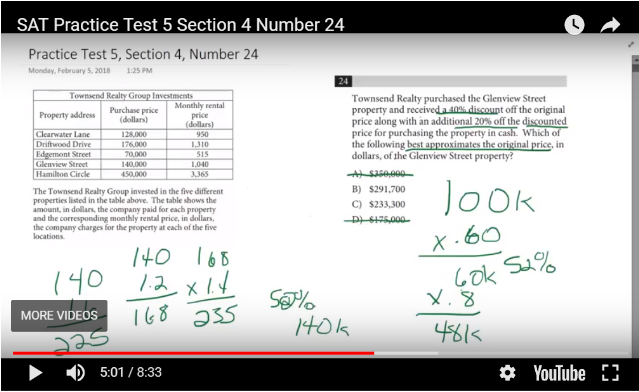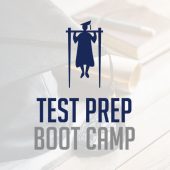How can parents help students with the SAT or ACT?
This week I was talking with a parent whose student has plateaued at a certain threshold on the SAT and ACT. It happens from time to time and can be frustrating for everyone – the student most of all. It can be for any number of reasons, many times unrelated to content knowledge. So much of these tests deal with commas and rectangles. For students, they understand the concepts. They struggle with applying the concepts to the questions.
Seeing the problem from the student perspective

Photo by Omar Ramadan from Pexels
The conversation reminded of something I used to tell parents when I coached soccer. One of the things you learn as a coach is how useless it is to try and tell a player to do anything while they have the ball. Their focus is on so many other things that any directions you give will never get through in time to be effective.
I would explain to parents how useless it was to yell, “Shoot!” when the player was in position to shoot. All the player is going to hear is a bunch of adults screaming for them to do something.
Think of it this way. If you’re at your job, does it make it easier or harder if your supervisor stands behind you and yells “Add” or “Select all”? Whatever your job is, it doesn’t help to have an authority shouting at you to do the fundamental tasks that will make you successful.
To understand this, I suggested the parents put together their own teams and play in an adult rec league. A bunch of the dads did and invited me to play. About halfway through the season we were out after a game and started talking about the night’s game. The dad next to me tapped me on the shoulder and said, “Okay, I get it.” He discovered how difficult it actually is to shoot the ball on target while a bunch of other people are also trying to kick the same ball. He understood what his daughter was up against. They all did. And the shouted directions on the sideline died down.
Applying that to the ACT and SAT
 So, what does this have to do with college prep? In talking with the student’s father last week, I could hear is frustration. He asked, “Do I need to go over the difference between a colon and a semicolon?” It seems simple, right? If we’ll just go over the difference, that should solve it. Colons do one thing. Semicolons do something else. But that’s not how they’re tested. The tests are very much about practical application of the concepts. They don’t ask about the qualities of rectangles or use of particular punctuation. They give the student problems they have to solve based on that knowledge.
So, what does this have to do with college prep? In talking with the student’s father last week, I could hear is frustration. He asked, “Do I need to go over the difference between a colon and a semicolon?” It seems simple, right? If we’ll just go over the difference, that should solve it. Colons do one thing. Semicolons do something else. But that’s not how they’re tested. The tests are very much about practical application of the concepts. They don’t ask about the qualities of rectangles or use of particular punctuation. They give the student problems they have to solve based on that knowledge.
One of the best things a parent can do to understand what their students are struggling with is to take an ACT or SAT for themselves. You have a unique opportunity here. If a student is struggling in English, you’re probably not able to sit in on the class discussion. If they’re not understanding a concept in Algebra II, you can’t sit through the direct instruction to see what they’re missing.
But you can take a current SAT or ACT. Knowing how these tests are testing the concepts is as easy as downloading any of the free copies available on the internet. In fact, you can get a copy of a free ACT here or get a copy of a free SAT here.
How to take the tests
You probably don’t have a 4-hour block of time to set aside to take a practice test. But you don’t have to take the entire test at one sitting to understand the tests. You should set a timer with the test to see how much you get done in that time, but you can take the tests section-by-section. Find out what it’s like to try and answer 75 questions in 45 minutes for the ACT English section. Find out how difficult that historical passage is on the SAT Reading when you have to find the best evidence to the previous question and you’re not really sure what the passage is saying in the first place.
You may or may not want to score the test when you’re done, but just like that soccer dad had a better appreciation of how difficult it was to shoot on command, you’ll have a clearer idea of what your student is dealing with on these tests.
I mentioned to the parent this week that I was sending his student home with some practice material, and he should work through the Reading and Writing sections to get an idea of how the concepts are being tested. I’m looking forward to my next session with the student to see if he did.










